おすすめの製品
フォーム
powder or solid
分子量
average Mn 10,000 (by NMR)
average Mn 10,000
色
white to faint yellow
PDI
≤1.3 (by GPC)
保管温度
2-8°C
アプリケーション
Poly(2-(diisopropylamino)ethyl methacrylate) is a pH-responsvie polymer. pH-Responsive polymers are a group of stimuli-responsive polymers that can respond to solution pH by undergoing structural and property changes such as surface activity, chain conformation, solubility, and configuration. The term “pH-responsive polymers” is commonly used to describe polymers having ionisable acidic or basic residues whose ionization depends on solution pH. The physical properties of the polymer, such as its chain conformation, configuration, and solubility, can be tailored by manipulating the pH or ionic strength. These unique properties of pH responsive polymer systems consequently make them very useful in various applications such as drug delivery, gene delivery, sensors, surfaces, membranes, and chromatography.
pH-sensitive polymer systems combined with nanotechnology could be utilized as an alternative strategy to traditional targeting systems to overcome major problems in current chemotherapy represented by non-specific tissue distribution of the drugs, tumor heterogeneity, and multidrug resistance (MDR) against anticancer drugs.
pH-sensitive polymer systems combined with nanotechnology could be utilized as an alternative strategy to traditional targeting systems to overcome major problems in current chemotherapy represented by non-specific tissue distribution of the drugs, tumor heterogeneity, and multidrug resistance (MDR) against anticancer drugs.
保管分類コード
11 - Combustible Solids
WGK
WGK 3
引火点(°F)
Not applicable
引火点(℃)
Not applicable
適用法令
試験研究用途を考慮した関連法令を主に挙げております。化学物質以外については、一部の情報のみ提供しています。 製品を安全かつ合法的に使用することは、使用者の義務です。最新情報により修正される場合があります。WEBの反映には時間を要することがあるため、適宜SDSをご参照ください。
Jan Code
910457-1G:
910457-BULK:
910457-VAR:
最新バージョンのいずれかを選択してください:
pH-Responsive polymers
Kocak G, et al.
Polym. Chem., 8, 144-176 (2017)
pH-sensitive polymers for drug delivery.
Huh K M, et al.
Macromolecular Research, 20(3), 224-233 (2012)
Jing Xie et al.
Macromolecular rapid communications, 38(23), 1499-1499 (2017-10-05)
Since diabetes mellitus has become one of the most serious threats to human health, researchers have been designing new drugs and developing new technologies to control the blood glucose level (BGL) while improving patient compliance. In addition to the traditional
Hong-ming Ding et al.
Scientific reports, 3, 2804-2804 (2013-10-01)
The major challenge in cancer therapy is to efficiently translocate drug molecules into cancer tumors without doing any damage to healthy tissues. Since there exist pH gradients between tumor and normal tissues, pH-sensitive materials may have great potential to overcome
Prithankar Pramanik et al.
Macromolecular rapid communications, 37(18), 1499-1506 (2016-07-23)
The synthesis, micellar aggregation, and pH-triggered intracellular drug delivery ability of an amphiphilic statistical copolymer (P2) are studied. Two methacrylate derivatives, one containing a hydrophilic pendant and the other containing a hydrophobic pendant chain, are copolymerized to produce P2. The
ライフサイエンス、有機合成、材料科学、クロマトグラフィー、分析など、あらゆる分野の研究に経験のあるメンバーがおります。.
製品に関するお問い合わせはこちら(テクニカルサービス)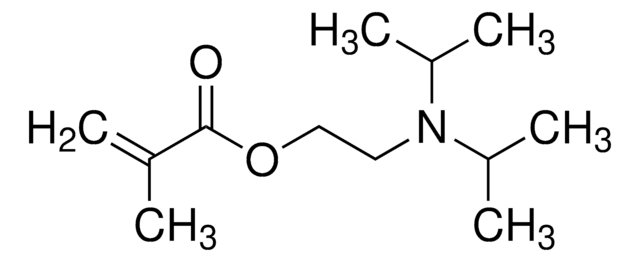
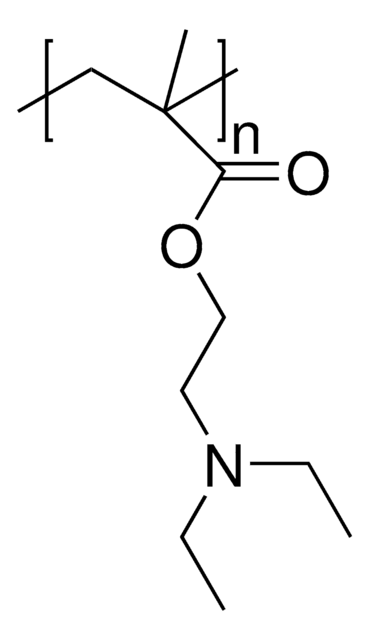
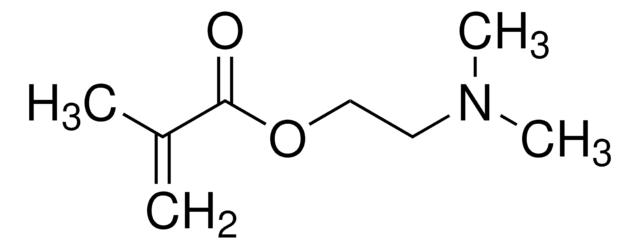
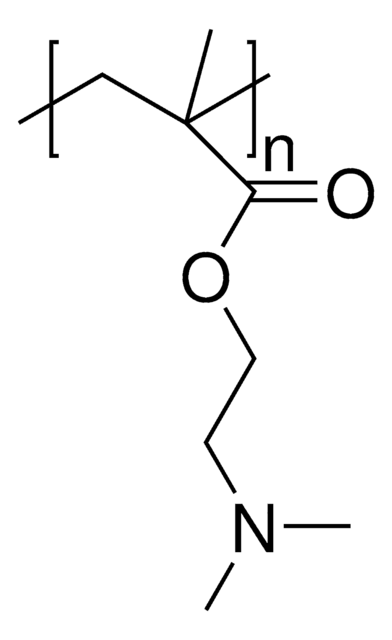
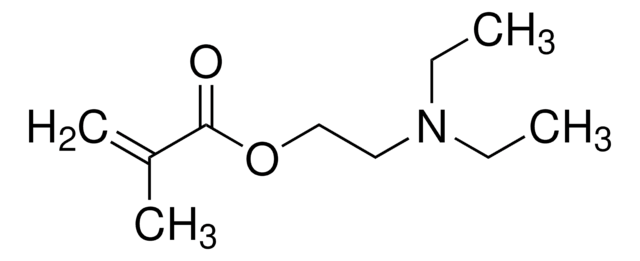
![N-[3-(ジメチルアミノ)プロピル]メタクリルアミド 99%, contains MEHQ as inhibitor](/deepweb/assets/sigmaaldrich/product/structures/295/145/6b4aae15-7cb5-4b7b-9c06-8e6d24e50951/640/6b4aae15-7cb5-4b7b-9c06-8e6d24e50951.png)
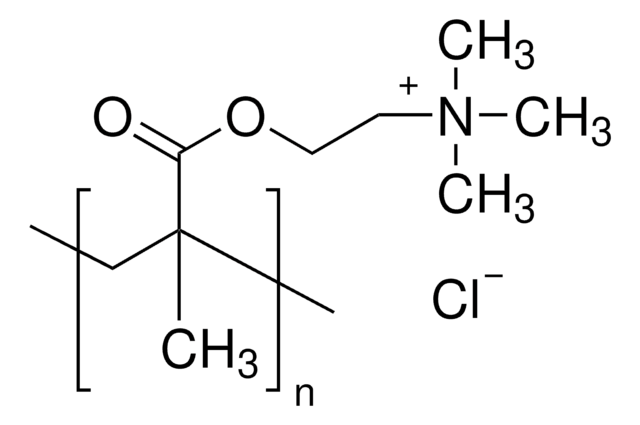
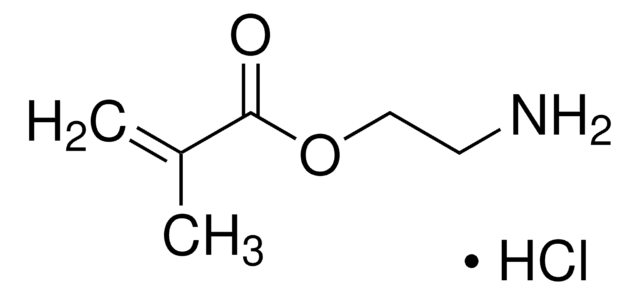

![[2-(メタクリロイルオキシ)エチル]トリメチルアンモニウムクロリド 溶液 75 wt. % in H2O](/deepweb/assets/sigmaaldrich/product/structures/316/612/66b0f4cf-d060-427d-b4f5-e8fab3e5cffe/640/66b0f4cf-d060-427d-b4f5-e8fab3e5cffe.png)